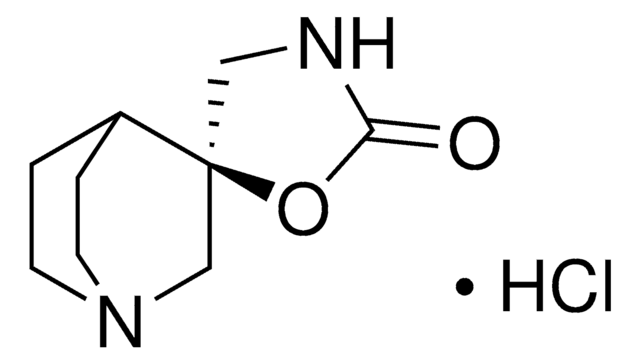SML2364
4-Androstenedione
≥98% (HPLC)
Synonym(s):
4-Androstene-3,17-dione, (8R,9S,10R,13S,14S)-10,13-dimethyl-1,6,7,8,9,10,11,12,13,14,15,16-dodecahydro-3H-cyclopenta[a]phenanthrene-3,17(2H)-dione, 17-Ketotestosterone, 3,17-Dioxoandrost-4-ene, Androst-4-ene-3,17-dione, Androstenedione, Fecundin, NSC 9563, SKF 2170
About This Item
Recommended Products
Assay
≥98% (HPLC)
form
powder
drug control
USDEA Schedule III
color
white to beige
solubility
DMSO: 2 mg/mL, clear
storage temp.
room temp
SMILES string
[H][C@@]12CCC3=CC(=O)CC[C@]3(C)[C@@]1([H])CC[C@]4(C)C(=O)CC[C@@]24[H]
InChI
1S/C19H26O2/c1-18-9-7-13(20)11-12(18)3-4-14-15-5-6-17(21)19(15,2)10-8-16(14)18/h11,14-16H,3-10H2,1-2H3/t14-,15-,16-,18-,19-/m0/s1
InChI key
AEMFNILZOJDQLW-QAGGRKNESA-N
Looking for similar products? Visit Product Comparison Guide
Biochem/physiol Actions
Signal Word
Danger
Hazard Statements
Precautionary Statements
Hazard Classifications
Acute Tox. 4 Oral - Carc. 2 - Lact. - Repr. 1A
Storage Class Code
6.1C - Combustible acute toxic Cat.3 / toxic compounds or compounds which causing chronic effects
WGK
WGK 2
Certificates of Analysis (COA)
Search for Certificates of Analysis (COA) by entering the products Lot/Batch Number. Lot and Batch Numbers can be found on a product’s label following the words ‘Lot’ or ‘Batch’.
Already Own This Product?
Find documentation for the products that you have recently purchased in the Document Library.
Our team of scientists has experience in all areas of research including Life Science, Material Science, Chemical Synthesis, Chromatography, Analytical and many others.
Contact Technical Service









